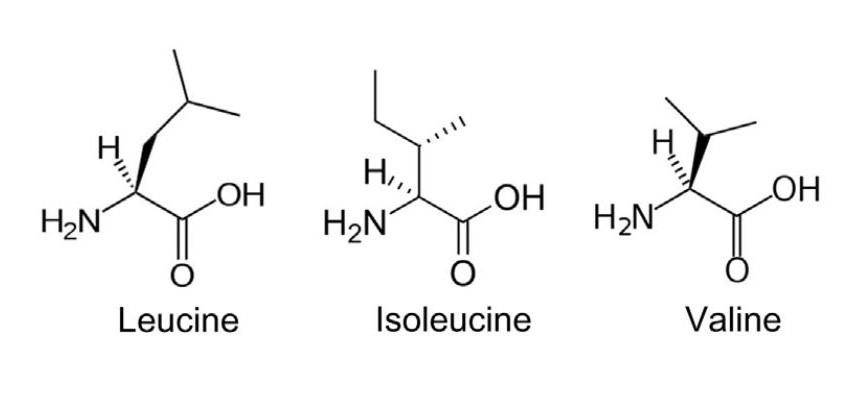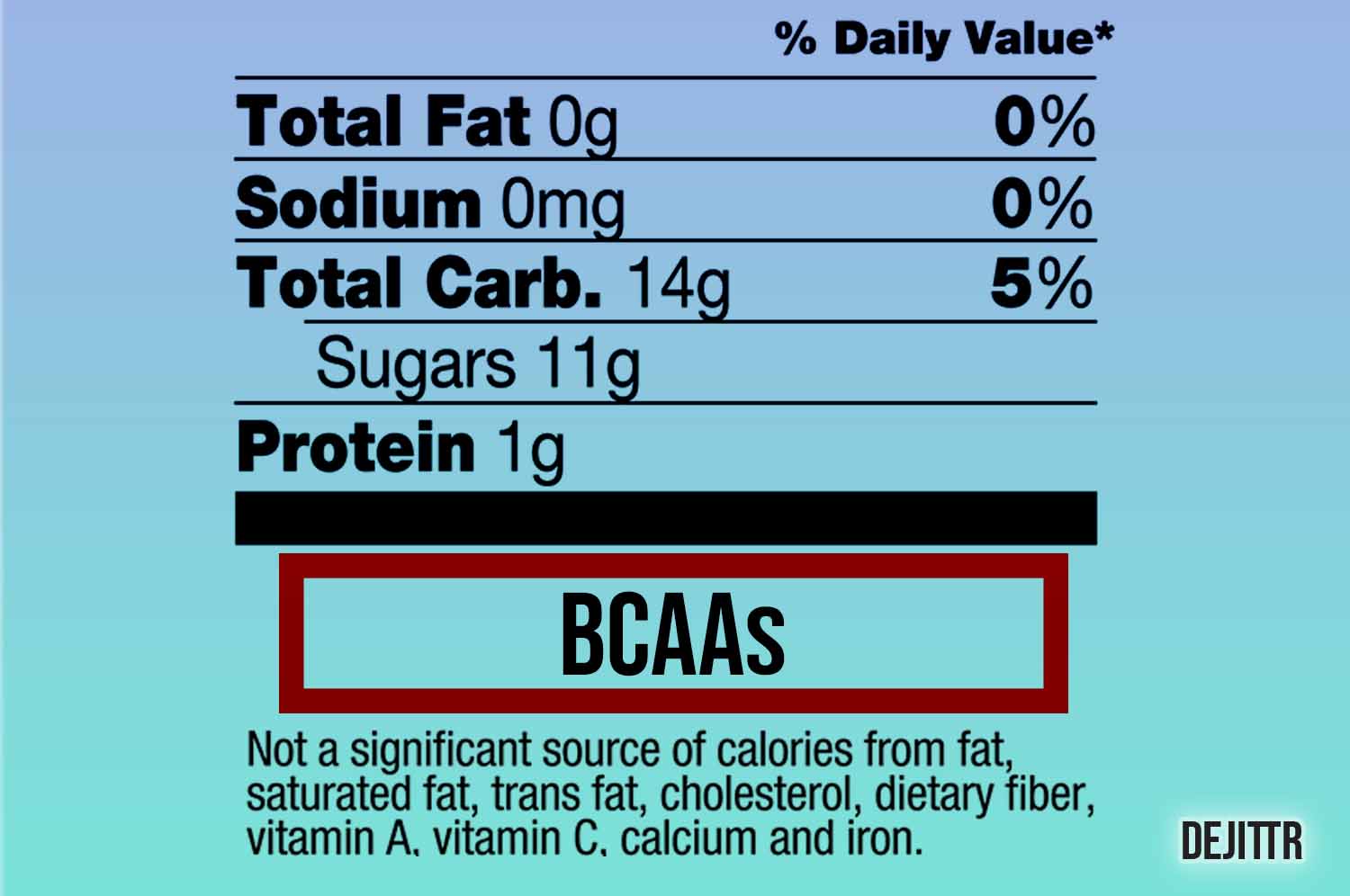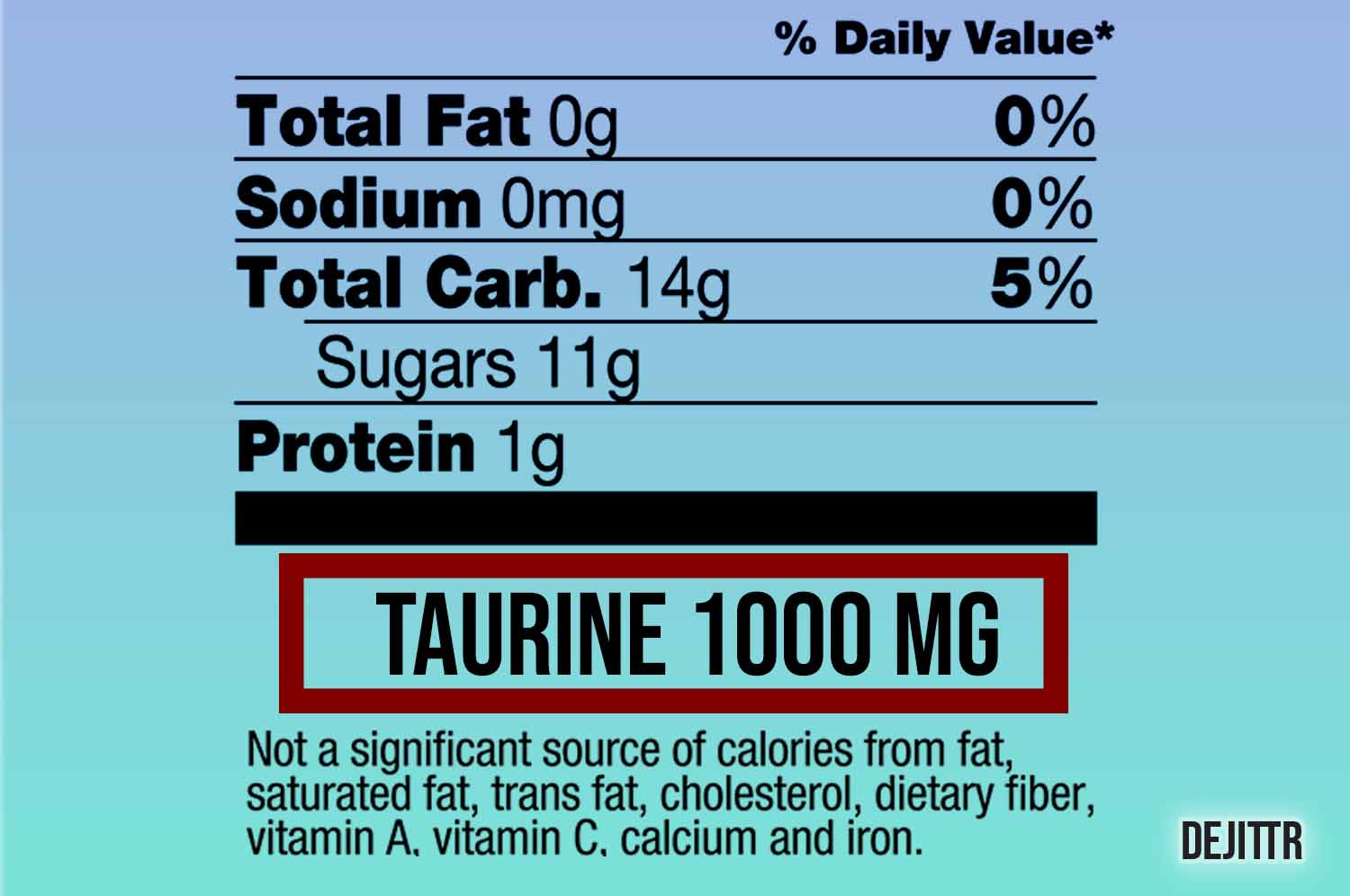Branched-chain amino acids (BCAAs) are a group of three essential amino acids. They are considered essential because our body cannot produce them on its own, and therefore they must be obtained through diet or supplementation.
BCAAs are the only ones that have a chain that branches to one side and are composed of the following amino acids: Leucine, Isoleucine, and Valine.
Like all amino acids, they fulfill essential functions in the body because they combine to produce proteins. However, unlike other essential amino acids, BCAAs have the particularity that they do not have to pass through the liver to reach the muscle, i.e., they arrive directly. This is why the idea that supplementing with BCAAs is ideal for increasing muscle mass, recovering faster, and having better performance, especially in intense workouts.
Do I Really Need Bcaas to Build Muscle?
Proteins play an important role in muscle building. All 20 amino acids are necessary to produce proteins, of which 9 are essential, and only 3 are part of the BCAAs, being leucine the one that has a more powerful effect in stimulating the body to build muscle proteins, which is why leucine is found in greater proportion in supplements.
During prolonged exercise (after 30 minutes), the need for BCAAs to contribute to energy production increases, therefore, BCAAs are lost in the muscle, which loss will increase according to the intensity and duration of training, diet and glycogen utilization.
Supplementing with BCAAs can help attenuate the loss, thus protecting muscle mass, because in the supplement the BCAAs are found alone. Since they are separated from the other amino acids, they can reach the muscle directly without passing through the liver, providing a faster effect.
Although supplementing with BCAAs can increase muscle protein production and protect muscle mass during exercise, the muscle needs all the essential amino acids.
Therefore, taking BCAA supplements is not essential, especially when you have a balanced diet high in protein, however, they can serve as a support to increase the results of your training regimen by boosting your goal faster and more efficiently.
When Should I Consume Bcaas?
Supplementation with BCAA is considered safe, however, ideally you should consult with a health professional to decide if it is right for you and the dosage you require, especially if you have a health condition.
BCAA can be taken shortly before and/or after training. However, it is also recommended during exercise, to help maintain energy.
Most supplements contain between 3 to 10 g of BCAAs per serving. While it can be taken several times a day, the dosage may depend on several factors, such as why you are taking them or your body weight.
Some sources consider that, if your goal is to lose fat or maintain your weight, it is recommended only once a day, preferably during exercise. If you are looking to increase your muscle mass, it is recommended to take it twice a day, one dose during training and the other at another time during the day.
Although no time has been established when to take them, some studies suggest that BCAAs peak 30 minutes after digestion, returning to their initial level after 180 minutes.
To enhance the effectiveness of BCAAs, it is ideal to take the supplement long-term, at least more than ten days, to see results in terms of muscle protection.
What are the Benefits of BCAAs?
Currently, BCAAs are popularly used as a supplement by athletes and fitness enthusiasts alike to enhance the results of their training routines.
Among the benefits are:
- Helps increase muscle mass: BCAAs play an important role in muscle composition. Supplements have the advantage that BCAAs pass directly into the muscle, without going through the digestion process.
Therefore, they are more readily available for use in the creation and recovery of muscle protein.
While BCAAs can promote muscle protein synthesis, it is necessary to consume all essential amino acids from the diet and/or integrate with other sources of complete proteins.
- Reduces fatigue during exercise: they help reduce both physical and mental fatigue.
This is because during exercise the muscles use BCAAs by decreasing their blood levels, which causes tryptophan (amino acid) levels to increase in the brain, which in turn causes tryptophan to be converted into serotonin, which is a brain chemical that is believed to promote the development of fatigue during exercise.
Therefore, maintaining BCAA levels during exercise can help decrease fatigue and thus enhance your performance.
- Decreases pain and muscle damage: they can help relieve pain due to exertion and inflammation caused by exercise.
It is usual that after training, muscle pain is felt within 12 to 24 hours and can last up to 72 hours.
It is believed that this happens as a consequence of small tears in the muscles, however, creatine kinase and lactate dehydrogenase enzymes are also involved.
BCAAs lower blood levels of these enzymes, helping to speed muscle recovery.
- Provides energy during prolonged exercise: the main source of energy for muscles is glucose, however, when this is depleted, BCAAs support energy production.
- Supports immunity: During intense exercise, immunity can be weakened and this may be due to a decrease in glutamine, an amino acid that immune cells use as an energy source.
Because BCAAs can be converted to glutamine in muscle, they can help keep immunity stable.
- Prevents muscle wasting: they help prevent muscle breakdown, which can occur in cases of malnutrition, chronic infections, cancer, periods of fasting or as a natural aging process.
Muscle wasting occurs when protein breakdown is greater than muscle protein production, so maintaining the balance is key to protecting muscle mass.
Since BCAAs represent 35% of the essential amino acids present in our body and 14 to 18% of the essential amino acids present in muscle, supplementing with BCAAs can help prevent it.
- Help lower blood sugar levels: BCAAs help promote blood sugar control.
This may be due to leucine and isoleucine, which seem to influence insulin secretion, increasing its values so that muscles absorb sugar, which causes blood sugar concentrations to decrease.
However, even though there are some studies that confirm this, other studies have differences, so more studies are needed to confirm their effects.
- Supports the prevention of liver disease: BCAAs can help reduce complications in people with cirrhosis.
Hepatic encephalopathy is one of the most common complications of this disease and causes confusion, loss of consciousness, and coma. Some studies consider that supplementing treatment with BCAAs helps to reduce the severity of symptoms.
However, no improvement in the overall survival rate and in the occurrence of other complications was obtained.
Are There Side Effects When Consuming BCAAs?
Taking BCAA supplements is generally safe and has no side effects in most people.
However, it is not recommended for pregnant or lactating women.
Those who have a congenital condition, known as maple syrup urine disease, should also limit BCAA intake because their bodies cannot properly break down BCAAs.
Can Bcaas Help With Weight Loss?
BCAAs are allies in weight loss and affect visceral fat.
They regulate cortisol levels or better known as the stress hormone, which, when elevated, increases insulin levels, tends to accumulate more abdominal fat, depletes muscle mass and decreases testosterone levels.
During intense workouts, cortisol tends to rise, however, it can also increase due to lack of sleep, restrictive diets or life circumstances that can cause stress, among others. Therefore, taking BCAAs can help balance the values of this hormone in the body.
However, although BCAA supplements can improve weight loss, a balanced diet high in protein will help prevent weight gain.
Leucine, Isoleucine, and Valine

Leucine
Leucine is an essential amino acid that is important for building and repairing muscles, bones, and skin. It is also used to make other essential biochemicals in the body. Leucine is found in many foods such as meat, fish, poultry, nuts, seeds, and beans. It is especially important for people who exercise regularly because it helps to stimulate muscle growth and repair.
Isoleucine
Isoleucine is also an essential amino acid that is important for building and repairing muscles, as well as for maintaining healthy skin and bones. It is found in many of the same foods as leucine, such as meat, fish, poultry, nuts, seeds, and beans. Isoleucine is also important for regulating blood sugar levels and providing energy to the body during exercise.
Valine
Valine is another essential amino acid that is important for building and repairing muscles, as well as for providing energy to the body during exercise. It is found in many of the same foods as leucine and isoleucine. Valine is especially important for people who participate in endurance sports like running or cycling, as it helps to prevent muscle breakdown during long periods of exercise.
In summary, Leucine, Isoleucine, and Valine are three essential amino acids that are important for building and repairing muscles, maintaining healthy skin and bones, regulating blood sugar levels, and providing energy to the body during exercise. They can be found in many foods, especially meat, fish, poultry, nuts, seeds, and beans.
BCAA vs. EAA
Essential Amino Acids (EAA) are composed of 9 amino acids, which must be obtained through diet, as your body cannot produce them. These are composed of the BCAAs, histidine, lysine, methionine, phenylalanine, threonine, and tryptophan.
Although BCAAs and EAAs have similar benefits in terms of improving body composition, protecting muscle mass, and enhancing muscle recovery. BCAAs rely more on energy, positively influencing performance during training, while EAAs focus more on protein synthesis.
In addition, EAAs contain the 9 amino acids in smaller proportions and must first pass through the liver to reach the muscle mass and be available for use. On the other hand, BCAAs arrive directly to the muscle and are available for use more quickly, being found in greater proportion.
Generally, supplementing with BCAAs is recommended when the focus is on increasing muscle building and obtaining extra power during exercise. However, it is necessary to have a balanced diet to meet the required nutritional needs of amino acids for protein synthesis.
As for EAA supplementation, it is recommended when you cannot meet the nutritional needs of amino acids in your diet, and should opt for a supplement that will help you meet your requirements to ensure that your body has all the amino acids for muscle protein building.
Therefore, whether to supplement with BCAAs or EAAs will depend on your requirements in terms of your nutrition and training plan.
Taking this into account, we can conclude that supplements are dietary supplements, that is, they are not indispensable for most people, since they can be obtained from a wide variety of foods such as meat, eggs, dairy products, poultry, fish, soy, peas, among others.
Finally, once your nutrition and exercise regimens are under control, it is possible to consider taking supplements to maximize your goals.













